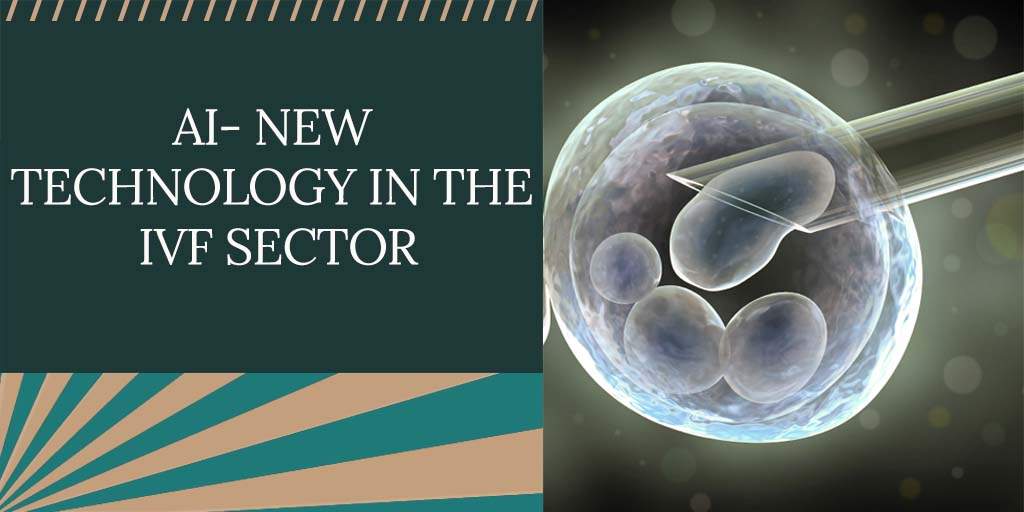Studies confirm that up to two-thirds of the performed IVF cycles fail and there may be no direct explanation for this, but AI systems might help solve the dilemma by picking the best viable embryos that humans can’t do. Currently, infertility treatments exert a lot of financial and emotional stress, especially in patients with previously failed IVF treatments. For couples trying to conceive, (“TTC” in the many on-line support forums), repeated failure of implantation described as three or more failed IVF cycles where there is no clear cause to be identified is a common, heartbreaking endpoint when the emotional, financial and physical burden of the treatment escalate to continue finding answers
With that, this means that there is a lot of work required to improve the IVF sector where every small advance in technology represents an opportunity to start a family. Currently, new infertility- related artificial intelligence (AI) startup thinks that it can help and some of the biggest players in computing are betting that they are right.
AI is currently being used to try and solve some major and a variety of healthcare challenges- IBM has developed a computational model that predicts heart failure and has lent the use of the Watson supercomputer to Memorial Sloan Kettering Cancer centre in New York to develop cancer-diagnosis and selection-of-treatment plans. Referred to as “Watson for Genomics” the project at least ten thousand scientific articles and one hundred new clinical trial reports per month, regularly generating new insights.
The decision of introducing AI to infertility has existed for decades and the closest solution currently available is the FDA approved Eeva test which uses time-lapse imaging microscopy to gather data over the length of the embryo’s culture period and a protocol to predict which embryo has the best chance of progressing
On the other hand, AI, though, because the algorithm is static, it doesn’t adapt when confronted with new information. A true AI system uses extensive learning to refine it’self on the fly based on new information. The “learning” in deep learning is attained through training; hundreds and thousands of data points are fed into the model so that future outcomes can be predicted and the predictions are compared against the actual outcomes and the model then readjusts itself. Input values can be text, signals, sounds, and most importantly for medical applications, images.
AI systems for IVF are still in the experimental phase, but the results so far are promising. In a particular example, the system used imaging with cow embryos to identify those that are most likely to survive. Overall, the Artificial Intelligence system had a 76% accuracy rating, portraying certain details that signaled poor quality embryos human evaluators had failed to identify.
In the field of human infertility, a new AI start-up at Sofat Infertility Centre is poised to address the challenge of moving AI from the theoretical and experimental to real human embryos. Our fertility expert- Dr. Sumita Sofat is dedicated to solving infertility matters with every new technology developments in the field. However, start-up companies, of course, have no mandate to publish their results for peer review. Fertility experts at Sofat Infertility centre and those around the world explain that retrospective trials conducted with other leading companies/partners in IVF have shown a high level of accuracy in identifying viable embryos, which is one way of suppressing the increasing failed IVF treatment cycles.
In addition, identifying viable embryos is the only initial hurdle in IVF. The embryos, later on, have to be transferred to the woman’s uterus and the women typically struggling with infertility are those aged above 35. These have often experienced repeated implantation failure with no explanation and may have suffered from other infertility issues such as endometriosis.
With this, the new technology (AI) for Infertility care will have to merge differently databases that are currently managed in multiple, incompatible systems and medical history data, drug treatment regimes, pre-implantation genetic screening, and clinical data. This would help doctors and physicians choose among the various treatment approaches/options that have the highest success rates and accept new information based on the patient’s responses to the treatments.
In clinical embryology, the certainty of the feature or a set of features that are most predictive of IVF success isn’t yet known. There is a probability that the most important variable for a successful IVF cycle could still be unknown, but that could potentially be resolved by an AI system. Certainly, one caveat plagues the field of medical AI; what isn’t yet known isn’t certain and fertility experts have to train AIs, leading to potential amplification of the present biases or the complete overlooking of some type of data. AI technologies have excellent potential to help the infertility field to soar over its current narrow focus on individual embryos and detect new patterns hidden in the patient data for overcoming the prevailing infertility cases.







